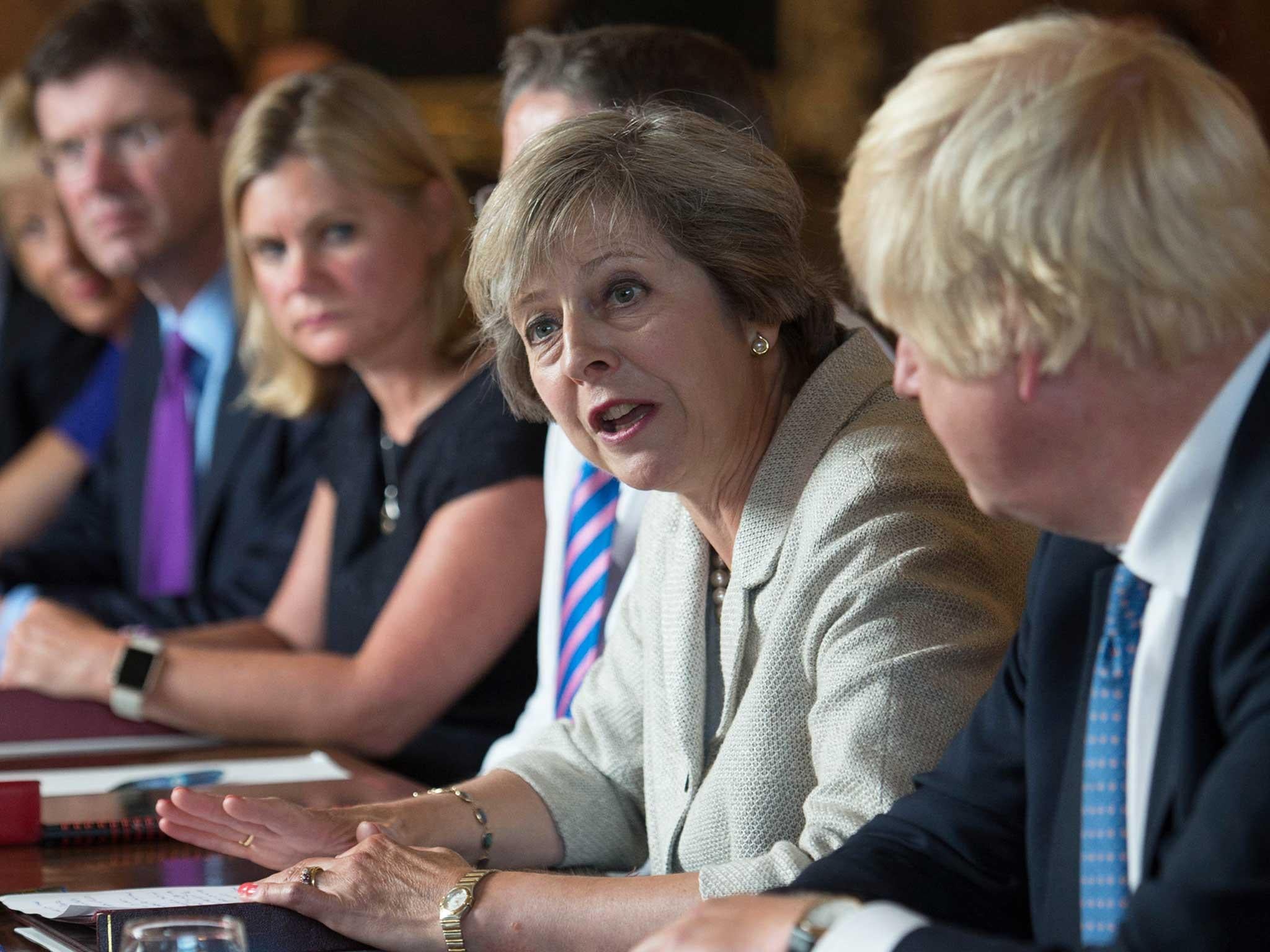Brexit means Brexit – but the Conservative Party remain divided on what that actually means
Some of the more outspoken members of the Conservative Party are happy to use the airwaves to voice their vision of Brexit, if that’s not too oxymoronic an expression to use about this dismal prospect

Brexit: Hard or soft? Lite or full-strength? Disaster or opportunity?
We all have our own views, of course, on what Brexit means, and there’s a rich spectrum of possibilities for the UK's future relationship with the European Union. Fine. What is much more worrying, is that this rich spectrum of opinions is also represented fully in the Cabinet, as the Prime Minister will no doubt be finding at her start-of-term meeting with her senior colleagues at Chequers. If the reports are to be believed, even the three Brexiteers – Boris Johnson, David Davis and Liam Fox – are divided about who does what as well as what to do.
Some of the more outspoken members of the Conservative Party are happy to use the airwaves to voice their vision of Brexit, if that’s not too oxymoronic an expression to use about this dismal prospect. Former minister Anna Soubry, for example, told the BBC Today programme exactly what she thought about “hard” Brexit and the damage that could do if it meant a lack of free access to the European single market.
She focused on the damage that would do to the car industry in particular, as others have stressed the negative impact on the City, science, agriculture, culture and other aspects of national life. Many in her party agree with her, and some in the Cabinet too. Even though they are all nominally Brexiteers, the splits in the Conservative Party are as real as ever.
By contrast Lord Lawson, former Conservative Chancellor, displayed a delightful insouciance about the single market, though he is to be congratulated for being clear-sighted enough to recognise the central truth now dawning on the Chequers summit and across government – that controls on immigration from the EU axiomatically means restricted access to the single market. For the EU to grant any sort of special deal to the UK would only provoke other EU member states to ask for the same preferential treatment, in which case it would not be referential at all and one of the EU’s central pillars – free movement of people – would disintegrate.
Lord Lawson’s advice to ministers that they should not try to “negotiate the un-negotiable” is the logical conclusion of the trade-off between the single market and free movement of labour, but it would still be worth a try to get something better than nowt.
Britain remains a significant expert market for Ireland, the Netherlands, Germany, France, Italy and Spain, while the links between the UK and other nations such as Poland, Lithuania and Romania via their substantial migrant communities here also means that Britain is in a different position to, say, Norway or Switzerland.
It is too early, then, to write off the possibility of a deal between the UK and the EU that contains some benefit for Britain. The fact remains, though, that we will never be able to enjoy the same access to the single market as we do today as full members of the EU, and that means serious harm to the automotive, finance and other sectors of the economy. The gains or “opportunities”, as Theresa May calls them, we take in the wider world will need to be substantial if they are to offset the losses from losing our status in the single market.
Such realities place the current run of economic statistics in the right perspective. Some are used by the Brexit camp to suggest all is well. Perhaps it is, because it is only a few weeks since the referendum, and Article 50 won’t even be triggered before next year. It will take time for the damage to the economy to feed through, but feed through it certainly will, that is compared to what the situation would have been had we kept our extremely advantageous position of being inside the single market but outside the single currency zone.
The greatest pity is that Theresa May has set her face so determinedly against a second referendum based on the eventual terms of Brexit. Whether it is hard or soft, lite or full-strength will make a big difference.
Let’s hope someone made the argument in the corridors of Chequers.
Join our commenting forum
Join thought-provoking conversations, follow other Independent readers and see their replies
Comments
Bookmark popover
Removed from bookmarks